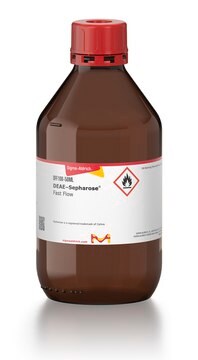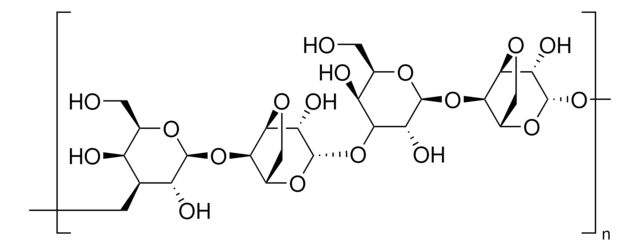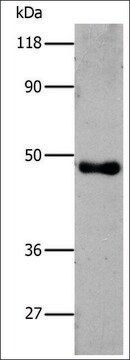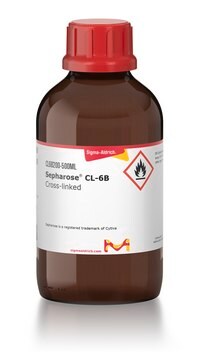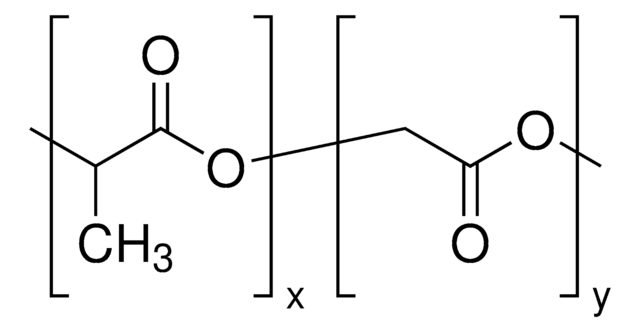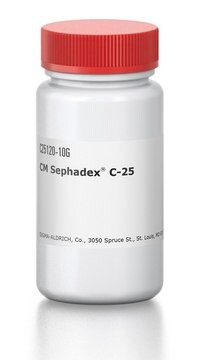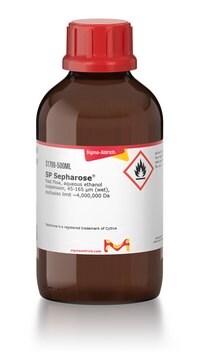CCF100
CM Sepharose™
Fast Flow
Synonym(s):
Carboxymethyl Sepharose™
About This Item
Recommended Products
form
suspension
technique(s)
affinity chromatography: suitable
matrix
6% cross-linked agarose
particle size
45-165 μm (wet bead)
pore size
4,000,000 exclusion limit (av. mol. wt.)
pH
4—13
capacity
90-130 μeq/mL(gel basis)
storage temp.
2-8°C
General description
CCF100-500ml′s updated product number is GE17-0719-01
25 ml is GE17-0719-10
Application
Legal Information
replaced by
Signal Word
Warning
Hazard Statements
Precautionary Statements
Hazard Classifications
Flam. Liq. 3
Storage Class Code
3 - Flammable liquids
WGK
WGK 1
Flash Point(F)
100.4 - 109.4 °F
Flash Point(C)
38 - 43 °C
Personal Protective Equipment
Regulatory Listings
Regulatory Listings are mainly provided for chemical products. Only limited information can be provided here for non-chemical products. No entry means none of the components are listed. It is the user’s obligation to ensure the safe and legal use of the product.
ISHL Indicated Name
Substances Subject to be Indicated Names
ISHL Notified Names
Substances Subject to be Notified Names
JAN Code
CCF100-PM:
CCF100-50ML:4548173948263
CCF100-VAR:
CCF100-BULK:
CCF100-500ML:4548173948256
CCF100-100ML:4548173948249
Choose from one of the most recent versions:
Already Own This Product?
Find documentation for the products that you have recently purchased in the Document Library.
Our team of scientists has experience in all areas of research including Life Science, Material Science, Chemical Synthesis, Chromatography, Analytical and many others.
Contact Technical Service